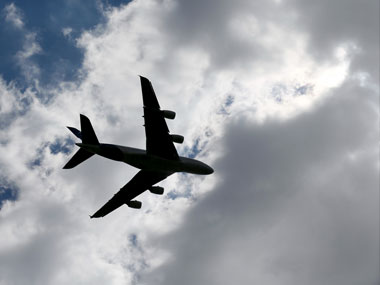The Rules relating to a no-fly list released by the Directorate General of Civil Aviation on Friday have been expected for a while now. The need to have a no-fly list in India was highlighted after Shiv Sena MP Ravindra Gaikwad assaulted an Air India employee with sandals earlier this year. This disgraceful and violent behaviour was captured on mobile phones and circulated on social media. Thereafter, he was barred from flying by all domestic airlines until he tendered a written apology to the Minister for Civil Aviation Ashok Gajapathi Raju expressing his regrets over the unfortunate incident. Subsequently, the ban was lifted following a written order from the ministry of civil aviation. [caption id=“attachment_4022751” align=“alignleft” width=“380”]  Reuters[/caption] While his inability to fly highlighted the fact that even MPs are accountable for their actions; it also raised the issue of whether airlines could legally refuse to let him fly. In this context, having clear rules regarding a no-fly list is a welcome move. The rules divide unruly behaviour into three categories depending on the nature and gravity of threat to other passengers, crew or to airline property. Level 1: Unruly Behaviour (physical gestures, verbal harassment, unruly inebriation etc.) - Ban up to 3 months Level 2: Physically Abusive Behaviour (pushing, kicking, hitting, grabbing, sexual harassment etc.) - Ban up to 6 months Level 3: Life Threatening Behaviour (choking, murderous assault and damage to aircraft operating systems) - Minimum ban of 2 years with no upper limit The pilot-in-command has been made the final authority to assess if the passenger can be controlled and accordingly inform the airline’s central control. The rules also impose certain obligations on airlines such as establishing Standard Operating Procedures, training their cabin crew, flight crew and ground staff. Further, airlines are required to constitute Internal Committees to adjudicate on complaints of unruly behaviour. The Internal Committee is to be headed by a retired Sessions Judge and is required to adjudicate on and decide the complaint within 30 days and in case it fails to do so, the passenger shall be free to fly. In the event that the decision of the Internal Committee is unacceptable to the passenger, he has the option to appeal before an Appellate Committee within 60 days of the decision of the Internal Committee. However, while the dispute resolution mechanism is satisfactory, there are several areas of concern in the rules. The most pressing concern is the provision which empowers the Ministry of Home Affairs to identify certain individuals as a national security threat. Further, the fact that this list will not be published as part of the no-fly list and will only be shared with the airlines, amplifies this concern. Given the manner in which the clause on national security is drafted, it seems that the DGCA does not have any power to refuse, differ or otherwise distinguish the Ministry of Home Affairs decision to include certain individuals on the no-fly list. Moreover, the rules require that passengers should be ‘carefully monitored’ by the airlines and that the airline staff should observe ’early signs of potential unruly behaviour’ and are required to act on these ’early signs’ instead of only dealing with escalated events. These are very vague and overbroad phrases which allow considerable discretion to private airlines to refuse passengers from boarding aeroplanes. Similarly, airlines have been given the power to employ ‘restraining devices’ once all other means have been exhausted - what are these devices and who will prescribe standards relating to them are important questions that need more specificity to protect the rights and interests of the passengers and prevent any undue injuries. Rav P Singh is a senior resident fellow and Samraat Basu a research fellow at Vidhi Centre for Legal Policy
The DGCA does not seem to have any power to refuse or differ from home ministry’s decision to include certain individuals on the no-fly list
Advertisement
End of Article


)




